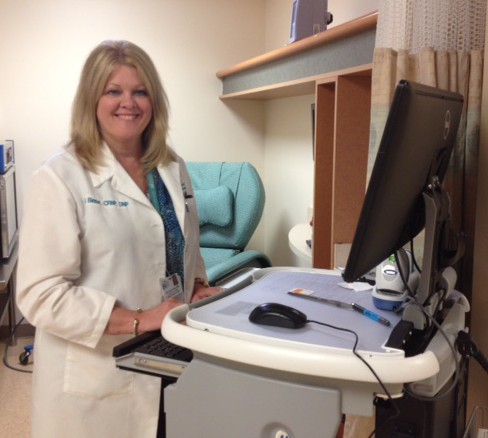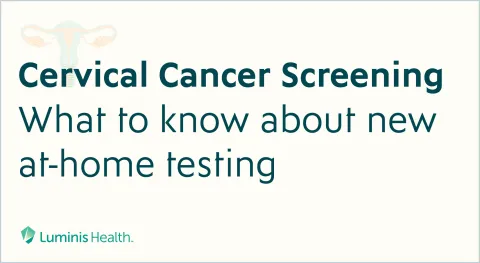by Luminis Health
Effective January 20, 2026, masks are encouraged for all staff, patients and visitors at all Luminis Health locations and will remain encouraged through the end of the influenza season. Thank you for your patience as we continue to care for our community.


 Madelaine Binner is an oncology nurse practitioner at Anne Arundel Medical Center.
Madelaine Binner is an oncology nurse practitioner at Anne Arundel Medical Center.


